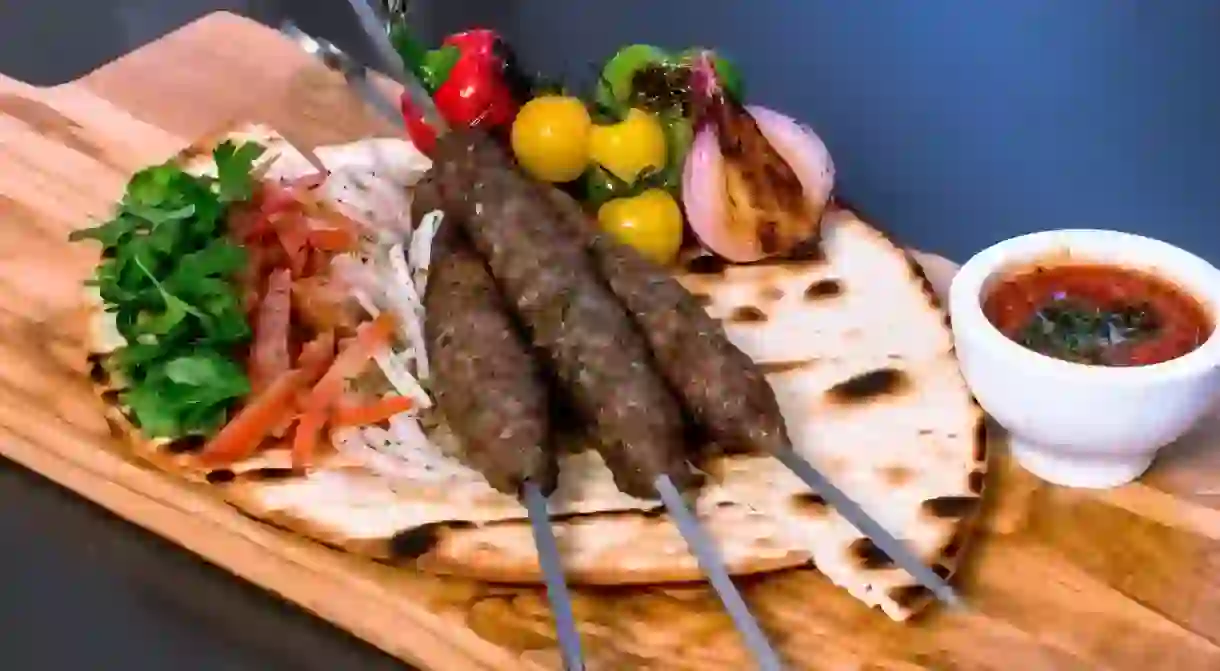The Best Local Dishes to Eat In Dubai

Dubai is known for its flavors. Bringing together so many different cultures into one city means there are restaurants from all cuisines imaginable located here. However, when coming to Dubai it is essential to try the local cuisine. Rich in both flavor and history, Emirati dishes will certainly impress visitors and leave them craving more.
Dates
Dates are widely known for being nutritious and healthy, and they have been a vital part of the local diet in the UAE for decades. Because date trees can thrive well in desert climate dates have become a staple in Emirati cuisine. Best known for being the first thing locals eat when they are breaking their fast in Ramadan, dates have also become a gourmet delicacy. Visitors can try some of the most delicious dates in Dubai in one of the many Bateel outlets all over town.

Mandi
Although mandi is traditionally a Yemeni dish, it is highly popular in the UAE and the rest of the Arabian Peninsula. Mandi consists of rice, spices and meat – most traditionally lamb or chicken. The meat is normally slow cooked under the ground for hours and once ready, it is served on top of the rice. Visitors who wish to try mandi can do so in a variety of specialised restaurants, most located in old Dubai. Al Jood Mandi and Bait Al Mandi are good ones to try.
Al Jood Mandi, Baghdad Street, Al Qusais Industrial Area 1, +971 4 267 7851
Bait Al Mandi, Al Muraqqabat, Deira, +971 4 262 9139
Camel meat
Camels have played several crucial roles in Emirati history, from transportation, to clothing and of course, providing food. The stuffed camel dish is a traditional Emirati delicacy and is usually served at weddings and special occasions these days. Although much less common than it used to be, visitors can still try camel meat when visiting Dubai. Camel meat is served in various different ways, and even camel burgers can be found in restaurants such as Switch and The Local House.
Switch, Ground Floor, Dubai Mall, Financial Centre Road, Downtown, Dubai, +971 4 339 9131
The Local House, 51, Al Bastakiya, Dubai, +971 4 354 0705

Al Harees
Fish
Fishing is a big part of Emirati tradition – fishing has been taking place in the Dubai Creek for decades. Traditionally the residents of the coast were the ones with access to fish, whereas Bedouins were more likely to eat camel or goat’s meat. Today, fish is one of the most popular foods in the UAE, fished locally and bought daily. The most famous fish of the region is the hamour and it can be found in a vast variety of restaurants in the city.

Qoozi
When is comes to rice and meat, the locals absolutely love dishes that include both. Qoozi consists of slow cooked lamb, with roasted nuts and raisins served over rice. The dish is vastly popular all over the Arabian Gulf, however there are variations in the way it’s cooked in different countries. In the UAE Qoozi is wrapped in date palm tree leaves before being put in a ground oven. In Dubai the dish can be found in very specific restaurants, such as Kabab Erbil Iraqi Restaurant and Babylon.
Kabab Erbil Iraqi Restaurant, Al Rigga Road, +971 4 269 1722
Babylon, Mamzar, +971 4 266 2100
Bread
Let’s face it, everyone loves carbs, and bread is one of the most delicious ways to eat them. Arabic bread is flat and soft and is better known as pita bread by Western cultures. However there are many different types of Arabic bread to be tried by visitors. Khamir bread, which is made of flour, thick yeast and dried dates is more commonly eaten for breakfast in winter. In summer, locals will probably eat chibab bread, consisting of almost the same ingredients but thinner yeast.














